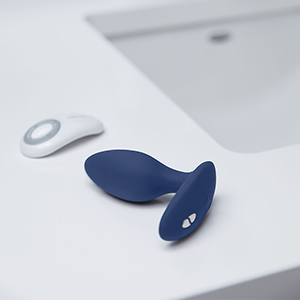Even if you have a lower-than-average libido, you might not want to forgo having a sex life or contributing to a partner’s. If you still want to experience fulfilling sex with another person you’re dating, communication and honesty—and realistic expectations—can help get you there. Even if you’re not hooking up every single day, you can still strive for quality over quantity! A lower libido isn’t necessarily a roadblock to amazing sex—just something to account for as you go.
How to know if you have a low libido
Having a low sex drive is relative and can be conditional and fluctuate over time. It includes arousal and desire on a less frequent basis than is considered average. There are very many reasons why someone might want sex less regularly than others in their demographic groups, like medication, stress, the amount of sleep they get, other health issues—the list goes on. People with testicles might have low testosterone levels, and people with vaginas may have hormone changes of their own, either of which can result in a low sex drive.
Getting to the root of your low libido, if there is in fact one cause, can put you in a calmer and more in-control mindset. “Identifying and addressing the cause can be healing, empowering, and liberating,” said relationship and trauma therapist Nicole McGuffin. Still, some people just aren’t as frequently interested in sex than others, without a particular reason for why.
How to bring up your low libido to a partner
Having a conversation that you or your partner might feel sensitive about is better than avoiding the conversation altogether and leaving each other in the dark about how to make sure you’re both feeling good about sex. The best time to tell someone you’re dating about your libido is in a calm conversation that’s more broadly about your connection in and feelings about the relationship—not in a sexual situation or a fight. “If this does come up at a difficult moment, agree to discuss it at another time,” said Mort.
If you’re feeling hesitant about initiating a conversation with your partner, it might stem from “an overall misunderstanding and miseducation around how sexuality fluctuates across our lives, in addition to stereotypes presented in the media about how relationships "should be,”’ noted Depasse. In romantic and sexual relationships, partners often take the desire for sex—or lack thereof—as a referendum on the other person’s affection for or attraction to them. Many of us have been socialized to think that our partner’s sexual desire is directly correlated to how much we want to be with them, and that’s simply not the truth.
Preface any conversation with a statement that affirms that your libido is not a reflection of how much your partner turns you on. Reminiscing about moments when you enjoyed physical contact with your partner can reassure them that you feel fulfilled in both your sex life and outside of it and remind both of you that you have an affectionate and close physical relationship to build from. You can say something like, “I got so excited during our shower together. It makes me feel good even just to be around each other like that.”
Focus less on the actual actions of sex, and more on the feelings and emotions that arise before you have sex. “Rather than talking about low or high sex drives, you could talk about what excites you, stimulates you, and the times you have noticed you were really turned on by your partner,” said Mort. Bring the focus to building a deeper emotional connection together instead of expecting a by-the-numbers breakdown of the individual needs of each person.
Once you’ve affirmed your partner and highlighted that your focus is on strengthening your bond, you can also talk about what you know helps you feel turned on, said Mort. “If you feel uncomfortable voicing these things out loud, practice by saying them out loud to yourself. The more you practice voicing your desires, the easier it will become,” she said. Try something like, “I’m really turned on when you do X—it just takes me a little longer to warm up to sex. Let's try again after a longer foreplay session?”
See Adult Toys to pep things up here>>>





